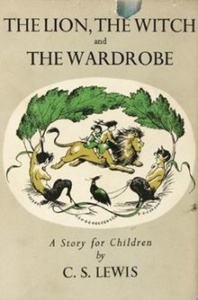The Unlikely Heroes of Christmas
Listen to the Recess! Clip
| Author | Kevin Shortsleeve |
| Air Date | 12/17/2002 |

The Unlikely Heroes of Christmas Transcript
Christmas traditions and holiday festivities have long been associated with words like Merry, Joy, and Celebration. The word Looser, however, hardly comes to mind when thinking of one’s favorite Christmas Carols. The truth is, though, that one of the most enduring meanings of Christmas is derived from the experiences of the Looser-Hero in Christmas folklore and popular culture.
In secular Christmas tradition, perhaps the most well-known character from literature is Ebenezer Scrooge, whose gloomy, wretched persona is the focal point of Dickens’ novella, A Christmas Carol. And today, what Christmas would be complete without a visit from that nasty, horrible Grinch Who Stole Christmas? Charlie Brown too, that self-described block-head looser who messes everything up – happens also to be the star of a Christmas Special that is one of the most popular in our culture. And don’t forget George Bailey, the looser-hero from It’s a Wonderful Life — as he stands on the bridge, looking down at the raging river, wishing he had never been born. For, this movie is regarded by many as the greatest Christmas film ever made. For all of these characters, it is Salvation – in the name of Brotherly Love — that ultimately rescues them.
C.S. Lewis, the author of The Lion, The Witch and the Wardrobe, noted that Christianity is a religion in which the most wonderful things in life are said to come from the commonest places. Might we not say then, “Blessed are the meek, Charlie Brown”? And in America, ever since the American Revolution, we have had a tradition of rooting for the underdog. As Emma Lazurus’ inscription reads on the Statue of Liberty:
Give me your tired, your poor,
Your huddled masses yearning to breath free,
The wretched refuse of your teeming shore,
Send these, the homeless, tempest tost to me:
I lift my lamp beside the golden door.
In these words we hear not only a meaning for America, but a meaning that we may extend to the Spirit of Christmas. And that inscription from The Statue of Liberty sounds, in fact, very like an old Christmas tradition in which families set one extra place at the Christmas dinner table-just in case someone needy or lonely, should appear at their door. This is the very same down-and-out character that Roy Orbison sings about in his Christmas song, Pretty Paper, that downtown shoppers hustle by in a rush to get home. Our songs, our films, our old tales and even our symbols of Liberty tell us then, that in the best Christmases, there must be a haven for the luckless, the “homeless,” the “tempest tost” and any who suffer and are “yearning to breath free.”